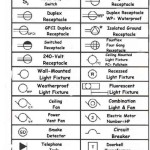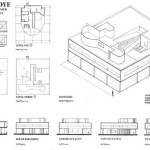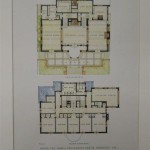Essential Aspects of Elevation House Plans
When designing a house, it's crucial to consider its elevation plan to ensure it meets your requirements and complements the surrounding environment. Elevation plans provide a comprehensive view of the house's exterior, including its height, shape, and architectural details. Here are some essential aspects to consider when creating elevation house plans.
1. Roof Style
The roof style significantly impacts the overall appearance and functionality of the house. Consider the slope, pitch, and material when selecting a roof style. Steeply sloped roofs are ideal for snowy areas, while flat roofs offer modern aesthetics. The material should complement the exterior design and withstand the local climate.
2. Exterior Materials
The exterior materials used define the house's character and durability. Options include brick, stone, stucco, and siding. Brick is long-lasting and fire-resistant, while stone offers a classic and sophisticated look. Stucco provides a seamless and customizable finish, and siding offers a wide range of styles and colors.
3. Windows and Doors
Windows and doors serve as both functional and aesthetic elements. Consider their size, shape, and placement to enhance natural light and complement the architectural style. Large windows offer panoramic views, while arched windows add a touch of elegance. Doors should be proportioned and placed strategically for easy access and visual appeal.
4. Architectural Details
Architectural details such as columns, moldings, and trim enhance the visual interest of elevation plans. Columns can support porches or balconies and create a stately appearance. Moldings and trim add depth and definition to walls and windows. Consider using decorative elements that harmonize with the overall design.
5. Symmetry and Proportion
Symmetry and proportion are essential principles in elevation design. A symmetrical elevation creates a sense of balance and order, while an asymmetrical design can introduce visual interest. Proportion refers to the relationship between the different elements of the elevation, ensuring they are visually pleasing and well-proportioned.
6. Site Considerations
The surrounding environment should inform the design of the elevation plan. Consider the topography, orientation, and landscaping when creating the elevation. A house situated on a hill may require a split-level design, while a house facing a lake may benefit from a large deck or balcony.
7. Architectural Style
The elevation plan should reflect the architectural style of the house. Traditional styles such as Victorian and Colonial emphasize symmetry and ornate details. Modern styles like Contemporary and Mid-Century Modern feature clean lines, geometric forms, and large windows. Choose an architectural style that complements your tastes and the surrounding neighborhood.
By considering these essential aspects, you can create elevation house plans that not only meet your functional needs but also enhance the aesthetics and value of your home. Remember to consult with a qualified architect or designer to ensure your elevation plans are accurate, code-compliant, and reflect your design aspirations.

Floor Plan Elevation Sample House Plans Building

Architecture House Plan And Elevation Complete Drawing Cadbullb Bungalow Floor Plans

Small House Plans Home Plan 3 Bedrms 2 Baths 1355 Sq Ft 136 1017

What Are Elevations Building Design House

3 Bedrm 1831 Sq Ft Craftsman House Plan 109 1013

20x26 Architecture House Ground Floor And First Plan Cad Drawing Include 1 Bedroom Kitchen Dining Area Bath Plans How To

How To Read House Plans Elevations

Multigenerational House Plans Make Room For Everyone Hensley Custom Building Group

Help With A House Plan Front Elevation Pro Sketchup Community

How To Draw Elevations








